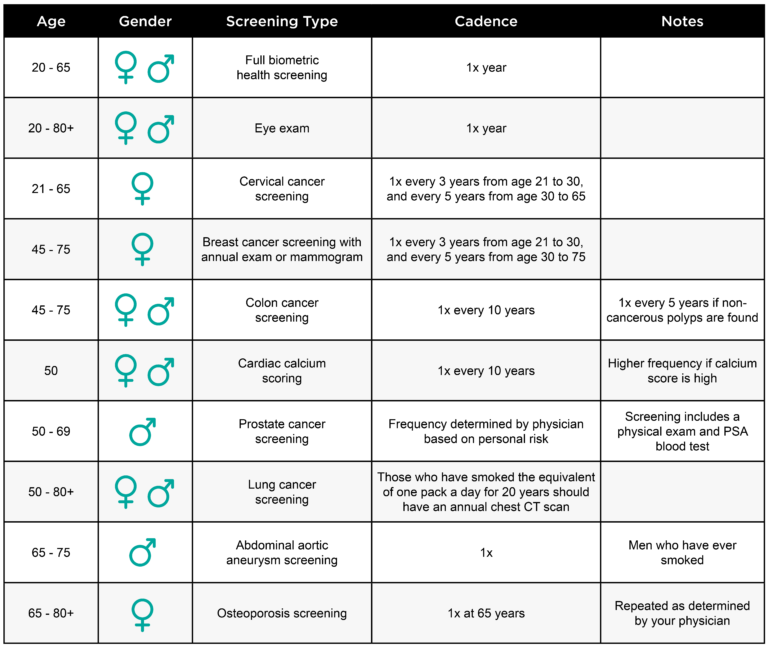
According to the National Cancer Institute, 23% of women in the United States are overdue for cervical cancer screenings, and 24% are not getting breast cancer screenings. For men, prostate cancer is the most frequently diagnosed cancer in 112 countries. If early detection is so critical, why do so many people skip these essential screenings?
Understanding Routine Health Screenings
Routine health screenings are tests that monitor various aspects of your health, such as the levels of certain chemical substances in your blood, the presence of precancerous cells, abnormal growths, diseases, deficiencies in calcium and other essential minerals that support bodily functions and basic cholesterol and blood glucose levels. They’re pivotal in identifying potential health issues or conditions that might require clinical attention or further testing and are designed to detect diseases at their early stages – where they are typically more manageable – and conditions that can be life threatening.
Why Routine Health Screenings Are Crucial
Despite the critical nature of these screenings, some people may hesitate due to concerns about their necessity, health care navigation, the potential unknown costs involved or simply not knowing the appropriate age to begin screenings. Routine health screenings are more than just precautionary measures; they are a way to discover what your body is not telling you in your day-to-day life. They’re a proactive way to detect diseases and conditions, with the goal of stopping them before they escalate into more severe health threats. For instance, the HbA1c test, is a simple blood test used to diagnose potential prediabetes, while annual mammograms can detect breast lumps in their early stages, and age specific colonoscopies to detect colon cancer leading to earlier treatment options and improved chances of survival.
Some other benefits of routine health screenings are:
- Reduced Anxiety: Regular screenings can help reduce stress and anxiety by providing peace of mind about your health status.
- Cost Savings: Early diagnosis through screenings can prevent the need for more extensive, expensive treatments later.
- Efficient Time Management: By keeping up with health screenings, you can reduce the likelihood of prolonged hospital stays or future admissions.
- Encouragement of Healthy Habits: Completing a health screening can motivate you to maintain a healthier lifestyle.
- Personalized Health Plans: Regular health screenings can provide a baseline for your health, assisting healthcare providers to tailor advice and or treatment plans specific to your results.

*Information based off of the National Institutes of Health and UCLA Health.
Why Routine Screenings are Important for Employers
Routine screenings, such as biometric health screenings, are easy for employers to offer and play a vital role in maintaining a healthier workforce. Early detection of serious conditions through these screenings can lead to timely treatments, reducing the likelihood of prolonged absences due to illness. This not only improves employee well-being and productivity but also lowers healthcare costs for employers by preventing more severe and costly health issues down the line. Promoting routine screenings demonstrates a commitment to employee health and can contribute to a positive workplace culture.
Take Charge of Your Future Health Today
Preventive health screenings offer a convenient, affordable, and effective way to understand and manage your risk for developing many chronic conditions and disease. They are a vital step in maintaining your independence and keeping you active and healthy as long as possible. Prioritizing these screenings is not just about staying healthy today — it’s about securing a healthier tomorrow. Learn more about these important screenings and how to get them today with eHealth Screenings.
